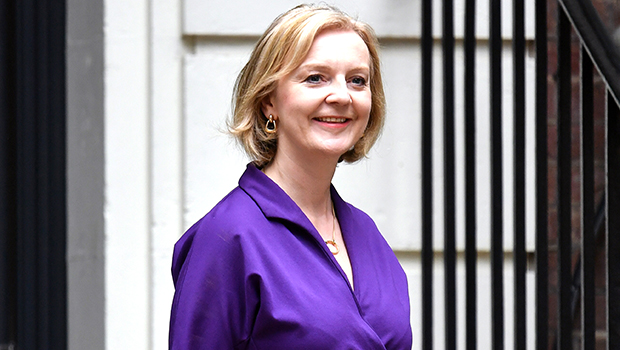Liz Truss: 5 Things To Know About The UK’s Prime Minister Who Just Resigned

Liz Truss announced her resignation just six weeks after being elected as the new Prime Minister of the UK, citing an ability to deliver on an economic plan that she campaigned on.
- Liz Truss was elected the prime minister months after Boris Johnson resigned.
- Truss has been a member of Parliament since 2010.
- She announced her resignation after about a month and a half in office.
Liz Truss announced her plan to resign in a statement on Thursday, October 20. The Conservative Party leader stepped down after just 45 days in office, making her the shortest-serving Prime Minister ever, per The Washington Post. The politician announced her plans to resign, citing that she was not able to enact her plans for economic growth. “Given the situation, I cannot deliver the mandate on which I was elected by the Conservative Party. I, therefore, have spoken to His Majesty, The King, to notify him that I am resigning as leader of the Conservative Party,” she said. There will be an election within the next week to determine the next leader of the Conservative Party.
Before her resignation, she became the new prime minister of the United Kingdom on Tuesday, September 6. She was elected the day prior, two months after former Prime Minister Boris Johnson announced his plans to step down in July. Truss, 47, met with Queen Elizabeth II shortly before her passing at Scotland’s Balmoral Castle to officially be invited to become prime minister. While her time as PM was short, find out more about Truss here!
1. Truss is the third female prime minister
Truss was decided as the new prime minister in a special election on Monday. She said that she was “honoured” to be elected in a tweet thanking her supporters on Monday. “I will take bold action to get all of us through these tough times, grow our economy, and unleash the United Kingdom’s potential,” she wrote.
Truss is the third woman to have been elected prime minister in the UK. All three female prime ministers have all been from the conservative party. The first woman to be elected was Margaret Thatcher, who held the office between 1979 and 1990. The second woman to be elected was Theresa May, who held the position from 2016 to 2019, after a special election, following David Cameron’s resignation.
2. She’s been in Parliament since 2010
Truss began her political career in the early 2000s, where she first made runs for office as early as 2001. She was first elected to the House of Commons in 2010, representing South West Norfolk. Despite being a member of the Conservative Party, Truss identified as a Liberal Democrat until 1996. She had even called for the monarchy to be abolished and for cannabis to be legalized, according to CNN. In terms of her politics, Truss has been viewed as having a libertarian approach to the economy. She also supports Brexit, despite initially opposing the UK from leaving the European Union in 2016, per Politico.
3. She’s held various cabinet positions
Besides being a member of Parliament, she’s held a number of different secretary of state positions for prime ministers since 2012, when she was appointed Parliamentary Under-Secretary of State at the Department of Education. Most recently she’d served as the Secretary of State for Foreign, Commonwealth and Development Affairs under Boris Johnson, as well as being the Minister for Women and Equalities. Prior to that she also served as the Secretary of State for Environment, Food, and Rural Affairs from 2014 to 2016, Secretary of State for Justice Lord Chancellor from 2016 to 2017, Chief Secretary of the Treasury from 2017 to 2019, and Secretary of State for International Trade from 2019 to 2021.
4. She’s married with two daughters
Truss met Hugh O’Leary in 1997, and the pair tied the knot in 2000. While Truss is no stranger to facing the public, he’s mostly stayed on the more private side, according to the BBC. O’Leary is an accountant, although he did make runs for office in the late 90s and 2000s. The couple have two daughters Frances, 16, and Liberty, 13. The pair’s marriage has suffered some difficulties. Truss had an affair with fellow politician Mark Field from 2004 to 2005, but she and O’Leary worked through the hard time. “I am really sorry about that [affair]. It’s a mistake I made and as far as me and my husband are concerned it’s water under the bridge,” she had said shortly after the affair became public knowledge.
5. She worked at Shell and Reform before Parliament
Prior to getting into politics, Truss had a few different jobs. One of her earliest jobs in the private sector was for the Shell Oil company and also becoming an accountant in 1999, per The Guardian. The following year, she was hired by Cable and Wireless, where she eventually became economic director. Prior to being elected to Parliament, Truss served as a deputy director at the conservative think tank Reform.
